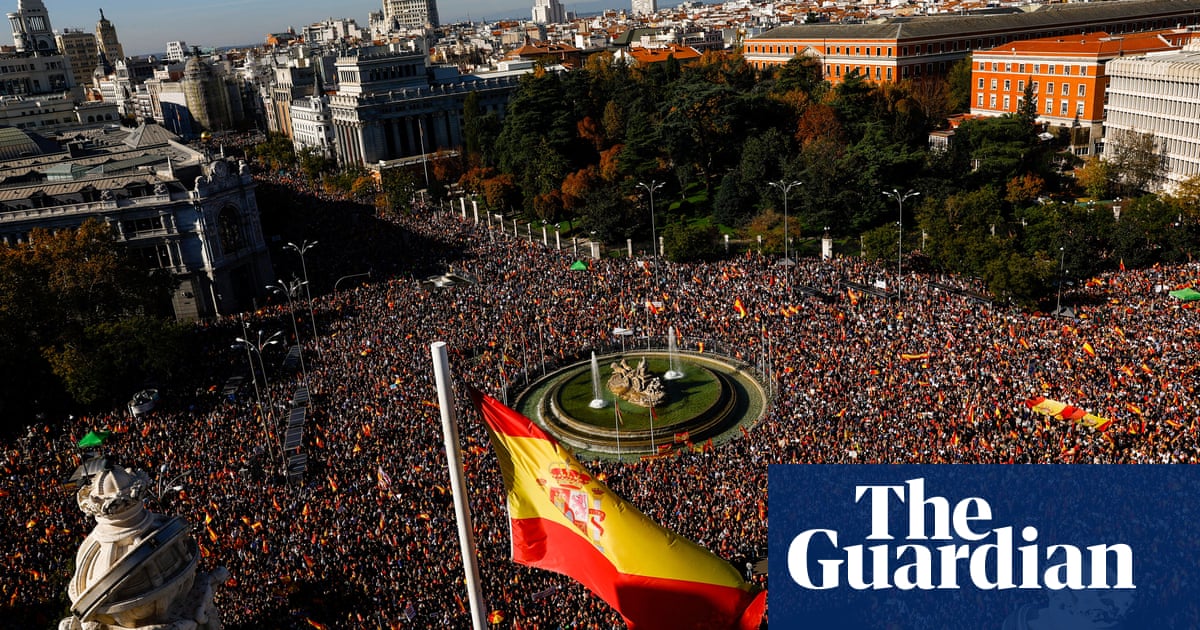
Thousands of people staged demonstrations in Barcelona to protest against the Catalan governments push for independence from Spain as Prime Minister Mariano Rajoy vowed to stand against the move for secession.
In an interview with the Spanish newspaper El Pais published Sunday, Rajoy said that he will consider employing any measure "allowed by the law" to stop the regions separatists.
That includes the application of Article 155 of the Spanish Constitution, which would allow the central government to take control of the governance of a region "if the regional government does not comply with the obligations of the Constitution."
"The ideal situation would be that I dont have to find drastic solutions, but for that to happen there will have to be some rectifications (by Catalan leaders)," he added.
Many in the crowd in Barcelona gathered in a central square carried Spanish and Catalan flags. Some chanted "Dont be fooled, Catalonia is Spain" and called for Catalan president Carles Puigdemont to go to prison.
Sundays rally comes a week after Puigdemont and other separatist leaders of the Catalan government held a referendum on secession that Spains top court had suspended and the Spanish government said was illegal.
The "Yes" side won the referendum with 90 percent of the vote, though less than half of the regions electorate voted. Puigdemont has pledged to push ahead for independence anyway and is set to address the regional parliament on Tuesday "to report on the current political situation."
Large rallies were held Saturday in Madrid, Barcelona and other cities to demand that Rajoy and Puigdemont negotiate to find a solution to Spains worst political crisis in nearly four decades.
Pro-union forces are hoping to gather more steam with Sundays protest in Barcelona after a series of large businesses, including Catalonias top two banks, announced they were relocating their headquarters to other parts of Spain. Other companies are reportedly considering leaving Catalonia to avoid being cast out of the European Union and its common market in the case of secession.
The Catalan authorities say around 90 percent of those who voted supported a split from Spain. Madrid says secession is illegal under the Spain’s 1978 constitution. Residents of Catalonia who oppose secession largely boycotted the vote.
The crisis is a political test for Rajoy, who has been uncompromising. Some 900 people were injured during the vote when police tried to disrupt voting, firing rubber bullets and charging crowds with truncheons.
The political stand-off has divided the country, pushed banks and companies to move their headquarters outside Catalonia and shaken market confidence in the Spanish economy, prompting calls from the European Commission for Catalan and Spanish leaders to find a political solution.
“I hope that the Catalonia that makes pacts, is moderate and for many years contributed to Spain’s economic growth and improvement in welfare and wealth returns. It can’t be in the hands of extremists, the radicals and the (far-left secessionist party) CUP,” he said.
However, Rajoy ruled out using mediators to resolve the crisis and also said the issue would not force a snap national election.












